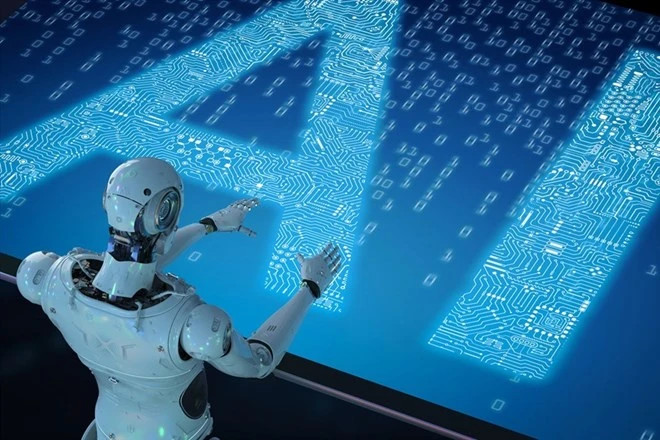Before leaving for Davos (Switzerland) to attend the 54th WEF Annual Conference, IMF General Director Kristalina Georgieva expressed concern that nearly 40% of global jobs will be affected by AI, of which developed economies and some emerging markets will witness its impact on 60% of jobs. According to Georgieva, this number will decrease to 40% for emerging markets and 26% for low-income countries.
The IMF report states that 50% of jobs affected by AI will face negative impacts, while the rest could benefit from enhanced productivity through AI integration.
This technology platform initially has little impact on emerging markets and developing economies, and their ability to benefit from AI is also lower. This can widen income gaps among the countries. Older workers are likely to be more negatively affected by the changes brought about by AI, as it is more difficult for them to adapt to new technology.
Georgieva expressed her belief that appropriate policies are needed to address these concerns, focusing on supporting low-income countries so that they can grasp the opportunities from AI. She affirmed that despite the risks, AI is still a unique opportunity for everyone.
The above concerns are not unfounded. The taxi drivers’ community is worried about the imminent risk of unemployment as they witness increasing AI-controlled driverless cars on the streets in many countries, such as the US, Japan and China, and the ability to become popular worldwide. The positions of traditional taxi drivers and even technology drivers will gradually be replaced by "AI drivers".
Automation in delivery, automated stores and online shopping technologies could impact traditional sales jobs. Smart computers and AI systems can replace humans in many traditional banking and financial actions.
Some medical and management jobs can be optimised or automated by AI technology. Chatbots and automatic response systems can replace customer service call centre staff. With AI technology, the director will have a virtual assistant, not necessarily an administrative secretary, and the company does not need many employees. Many people used to think that AI could only replace simple functions, and intellectual jobs, such as graphics, creativity, painting, photography or programming, could rarely be replaced.
Now, with AI applications, programming is one of the jobs forecast to be severely impacted in the next 2-3 years. For example, it used to take three days to manufacture a product, but now it only takes 3 hours, thanks to AI. According to Steve Chase, head of the consulting team at the audit and advisory firm KPMG (from the US), the above concerns are completely understandable because, with most technological advances, the workers’ initial fear about the risk of losing their jobs and being replaced is inevitable.
The 2024 WEF Meeting, themed "Rebuilding Trust," is taking place in Davos, Switzerland, from January 15-19, in which AI is one of the main topics on the agenda. The WEF leader stressed that the issue of AI application and control is becoming very important to humanity, so policies are needed to exploit and control AI while managing legal challenges and the technology’s progress to serve socio-economic development.
Director General of the International Labour Organisation (ILO), Gilbert F. Houngbo, said warnings reported that AI technology will take away many people's jobs, but it will also create new opportunities and new jobs. Therefore, the important task is to ensure that workers in the fields under AI intervention will improve their skills and accept new trends and types of work.
















